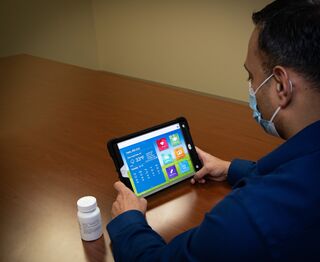Psychiatry
How You Can Help Advance Psychiatric Research
The importance of clinical trials.
Posted May 18, 2021 Reviewed by Davia Sills
Key points
- Medical research is the key to advance science across all disciplines.
- You can enroll in clinical trials.
- We have seen medical research translate to better care.

The COVID-19 pandemic has helped shine a light on the importance of medical research and how crucial clinical trial participation is to advance science and make a difference. More importantly, it also showed how essential it is for diverse patients from all walks of life, backgrounds, and health histories to participate in these studies. Beyond COVID-19, in the field of psychiatry (and every medical discipline), the ever-present need for patient participation in these studies is just as imperative.
Clinical trials ask for participants, both healthy and those with certain conditions, to volunteer their time (often with some financial compensation) and aid medical research. Each trial is different and can vary from something as simple as speaking into a microphone or taking a survey on how you feel to more intricate trials involving bloodwork, experimental drugs, hair sampling, or even brain scans.
For my research we analyze participant's digital data including personal online and social media information. We can then take that data to see if there are patterns associated with their experiences, leading to better clues to help care for other people with similar conditions. That's it! No trips to the hospital, no lab work, just some digital data.
Knowledge comes in all shapes, sizes, and forms. Each researcher has a particular focus and is looking to answer questions related to a specific area of interest. For example, I am interested in technology, social media, and the internet. We can use all of that valuable data to help our patients, particularly those with schizophrenia spectrum disorders. The goal is to develop tools that would allow us to intervene earlier to help support better outcomes.
The value of research is advancing science and gaining knowledge, and the ultimate goal is to move the medical field forward to find better and more effective ways to care for our patients. Diverse clinical trials are necessary for us to be sure of our findings.
There may be some risks associated with clinical trials, some bigger than others. But those risks are always carefully weighed and presented to each volunteer participant. A review board monitors each trial to make sure that they adhere to the utmost ethical standards. And hey, sometimes a patient isn't interested, and that is OK. As a psychiatrist, my patients' comfort and care take priority over any study I may be conducting.
The only way we can advance our care, both within psychiatry and across all medical disciplines, is through research. Surgeons wash their hands before entering the operating room, right? Well, you can thank medical science for that. The idea that we can go from a question to an experiment and then implement that into everyday practice is every researcher's ultimate goal. This "lab bench to bedside" attitude has been achieved in our lifetimes—again, look at the COVID-19 vaccines.
One of the most impressive and needle-moving scientific endeavors is the Recovery After an Initial Schizophrenia Episode (RAISE) project. Developed and led by my mentor and director of the Institute of Behavioral Health at the Feinstein Institutes for Medical Research, John Kane, early psychosis intervention is now a national initiative. With the support of the National Institutes of Health (NIH), RAISE set out to explore coordinated specialty care (CSC) as a recovery-oriented treatment program for people with first-episode psychosis (FEP). A few years later, the RAISE model is funded across the United States.
Clinical trials are imperative to the future of this field and others, all thanks to selfless volunteers who value science.


